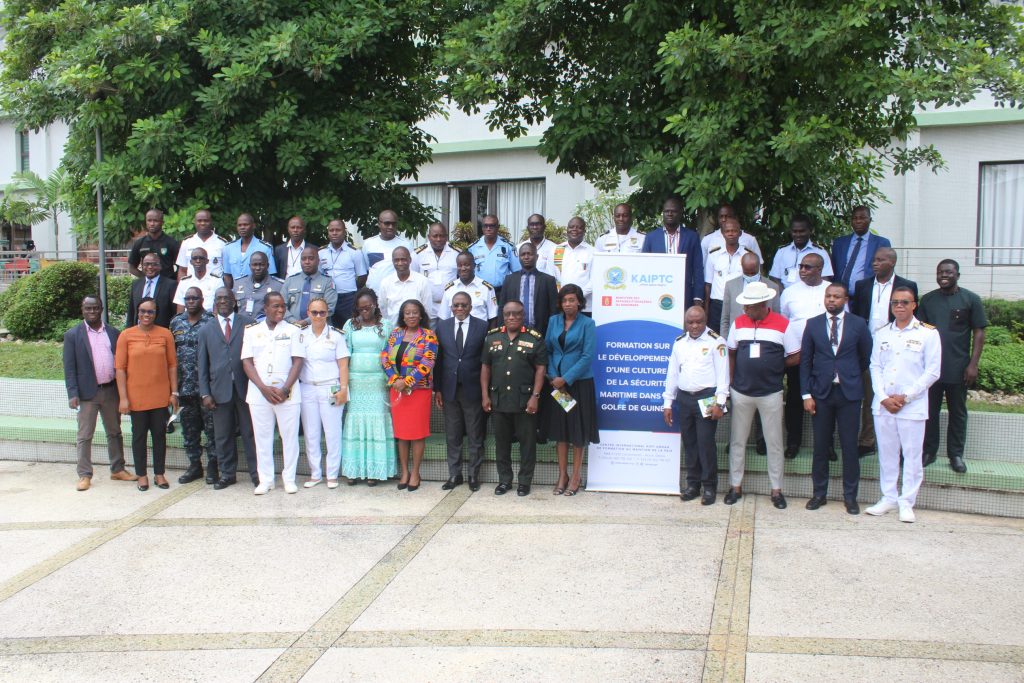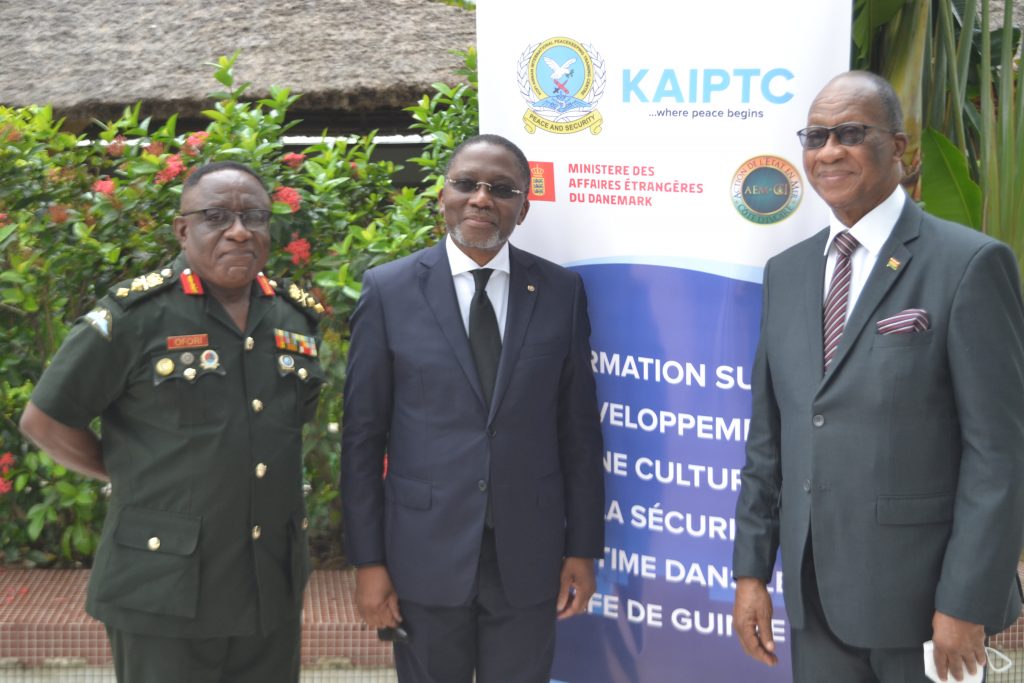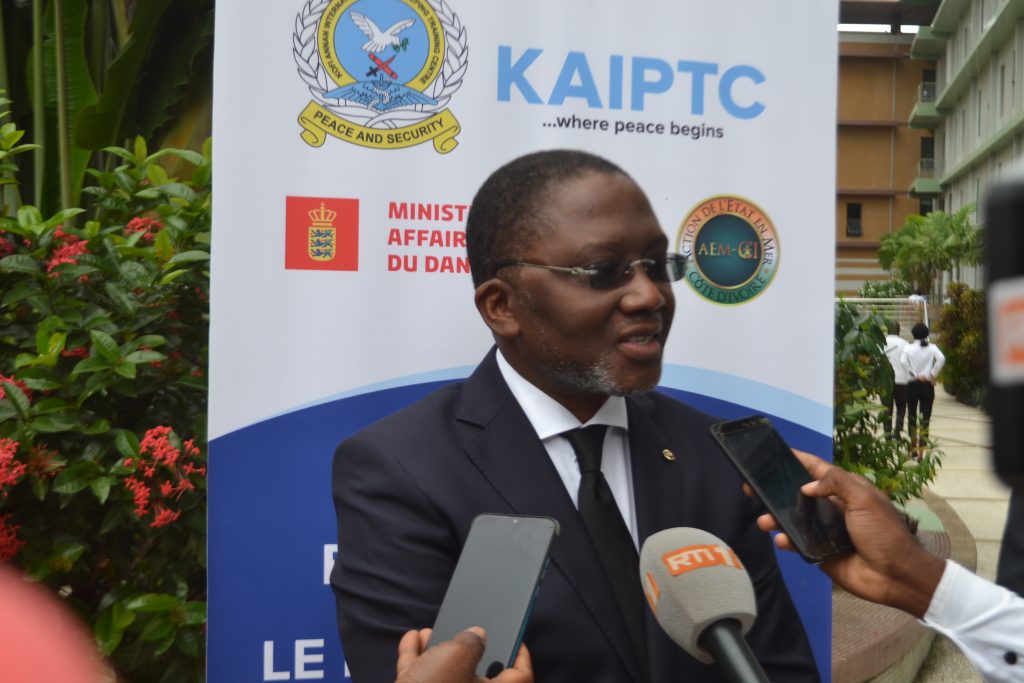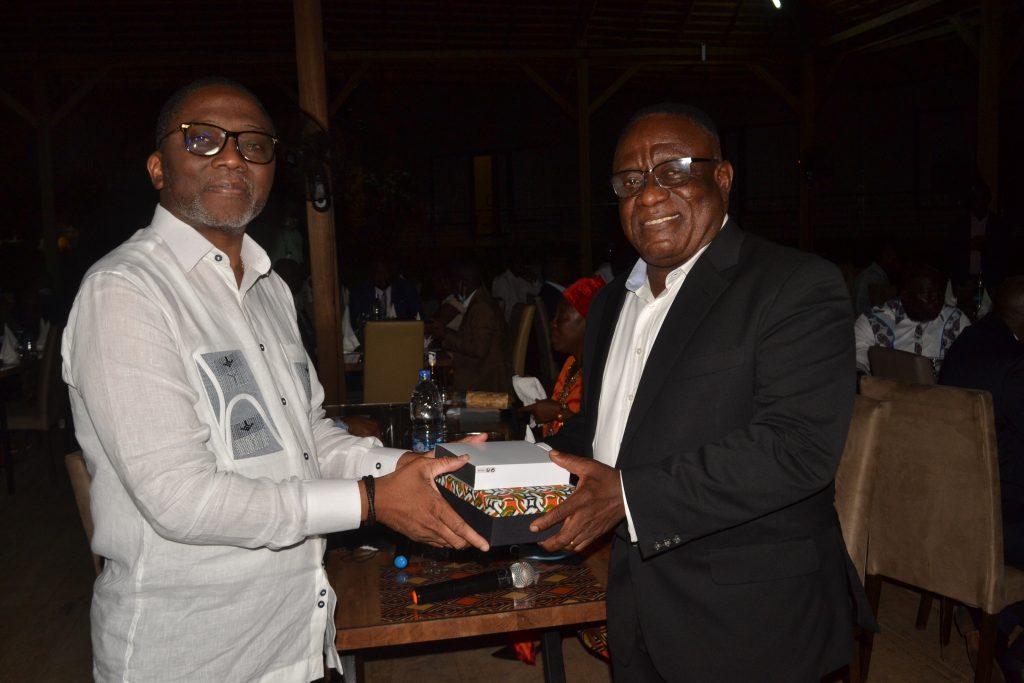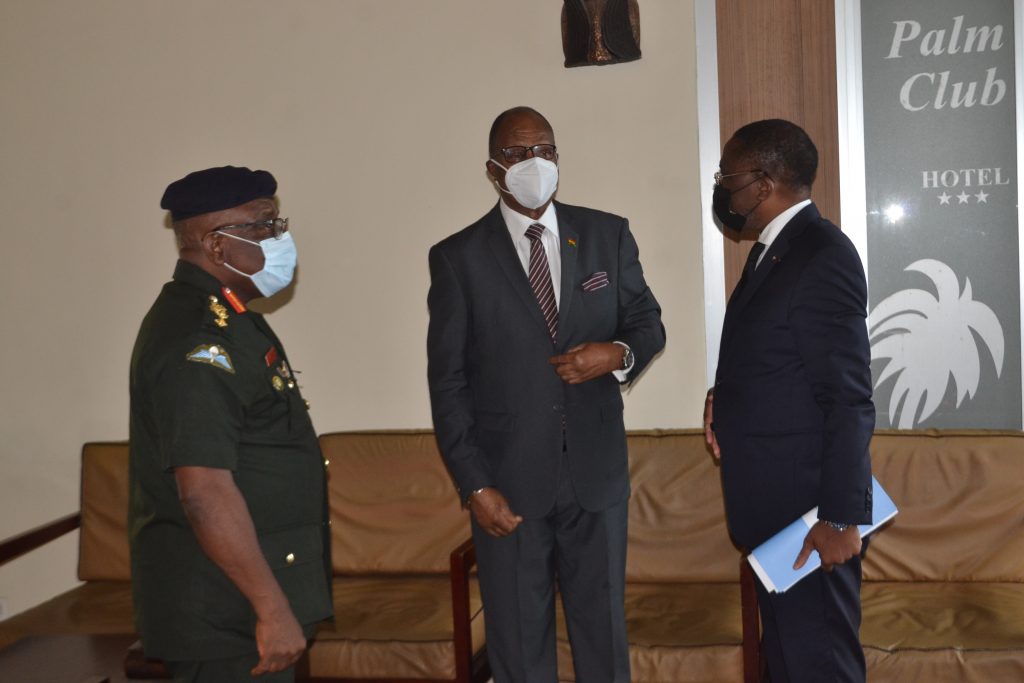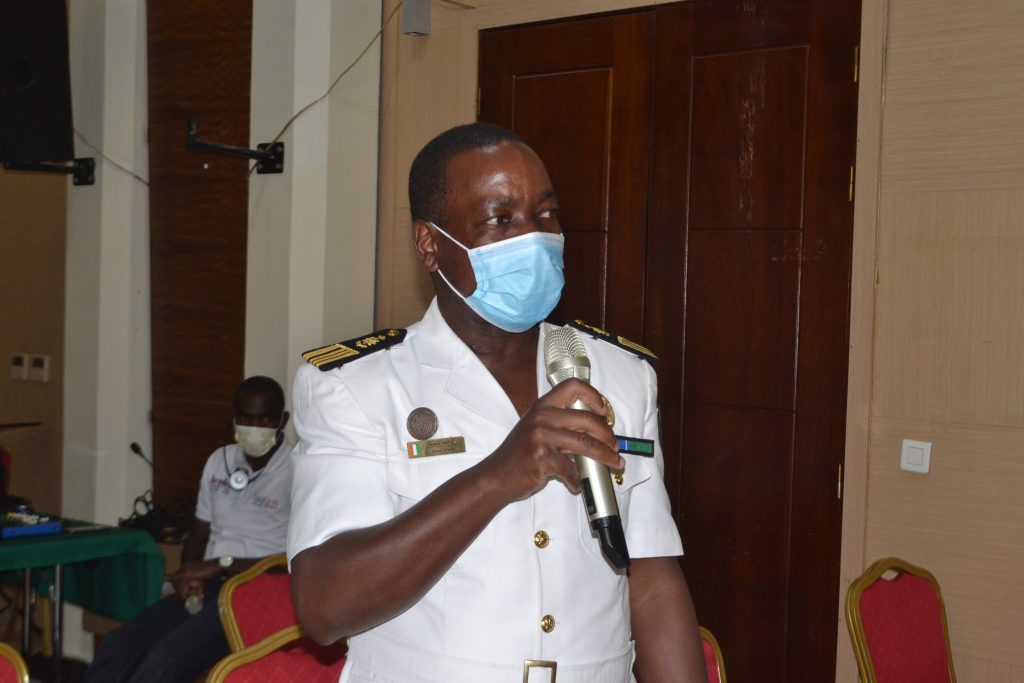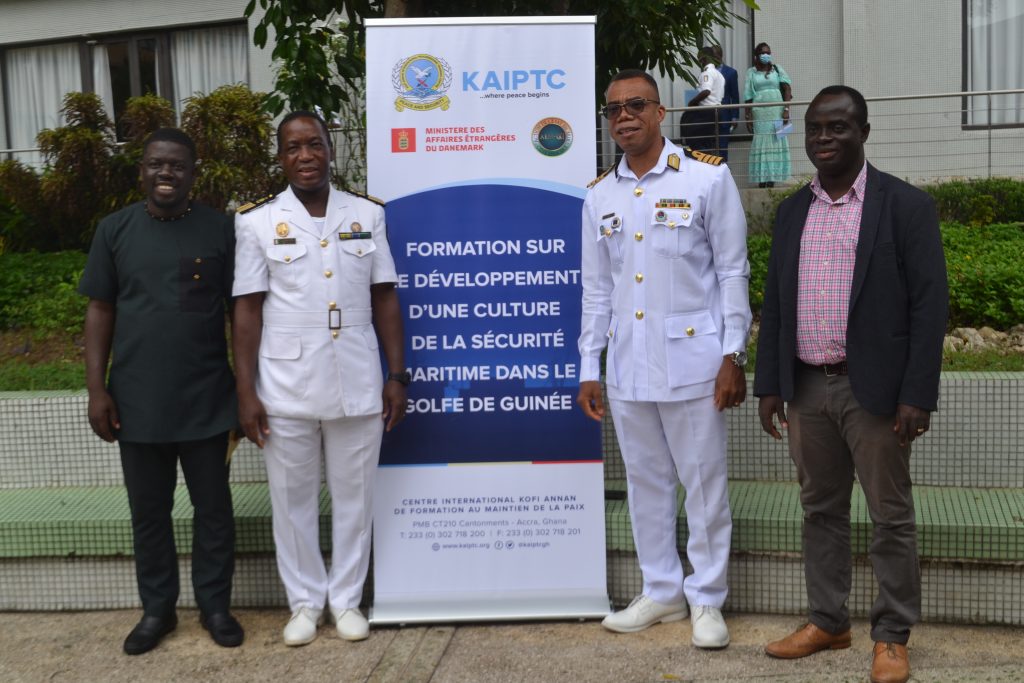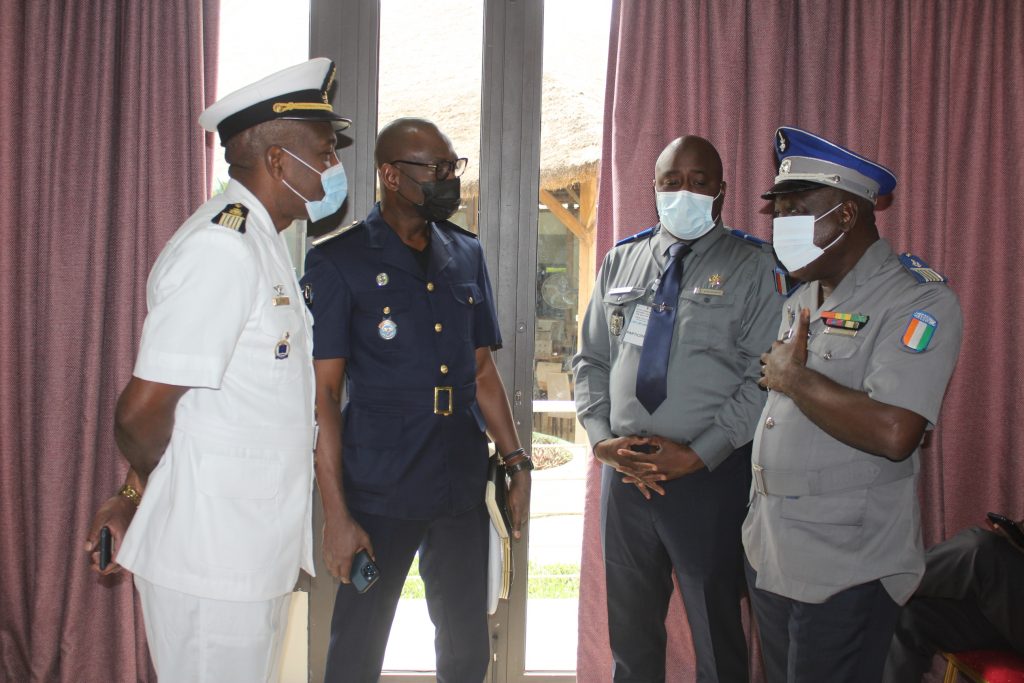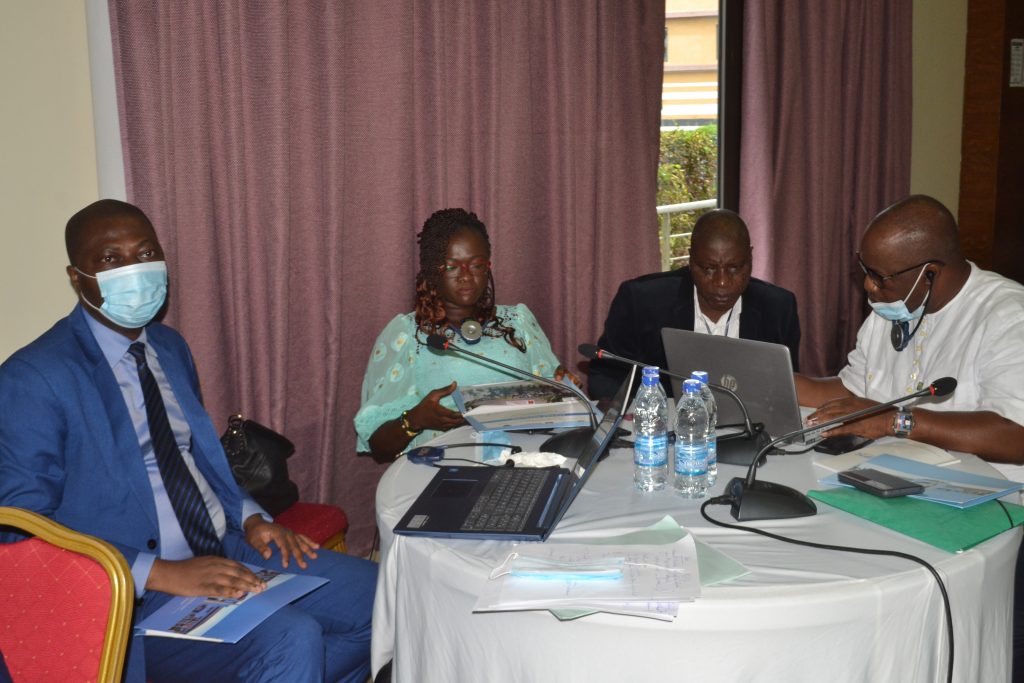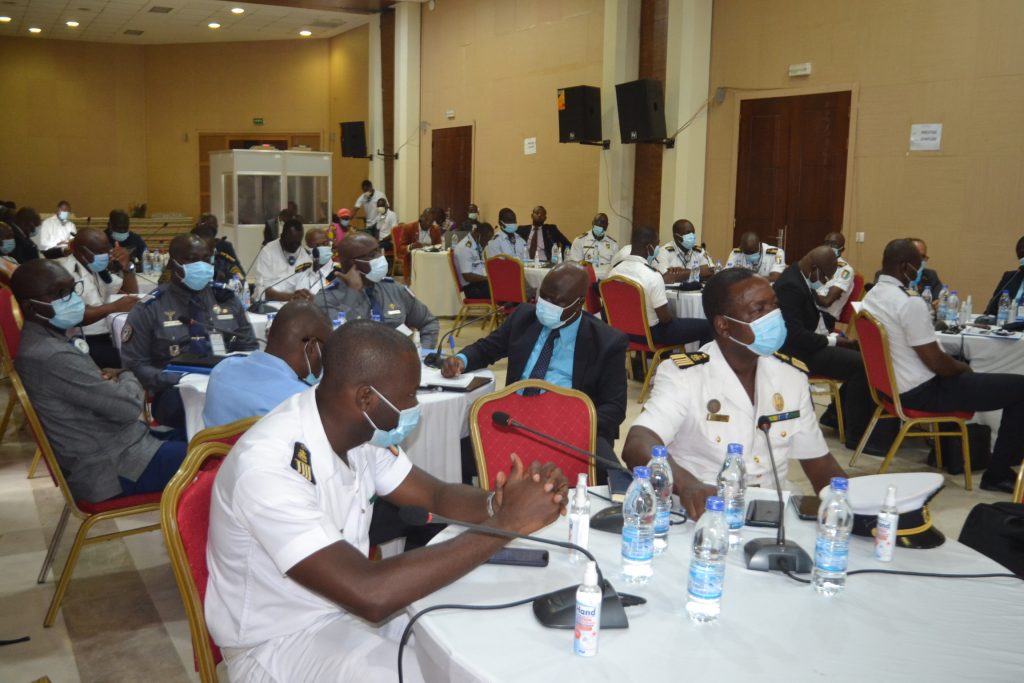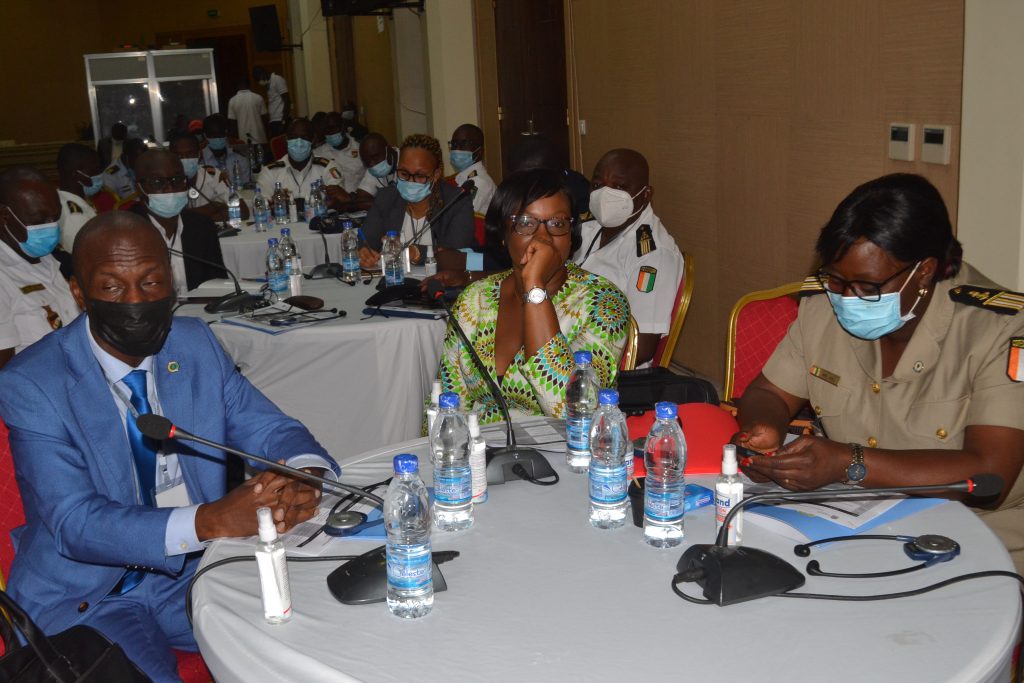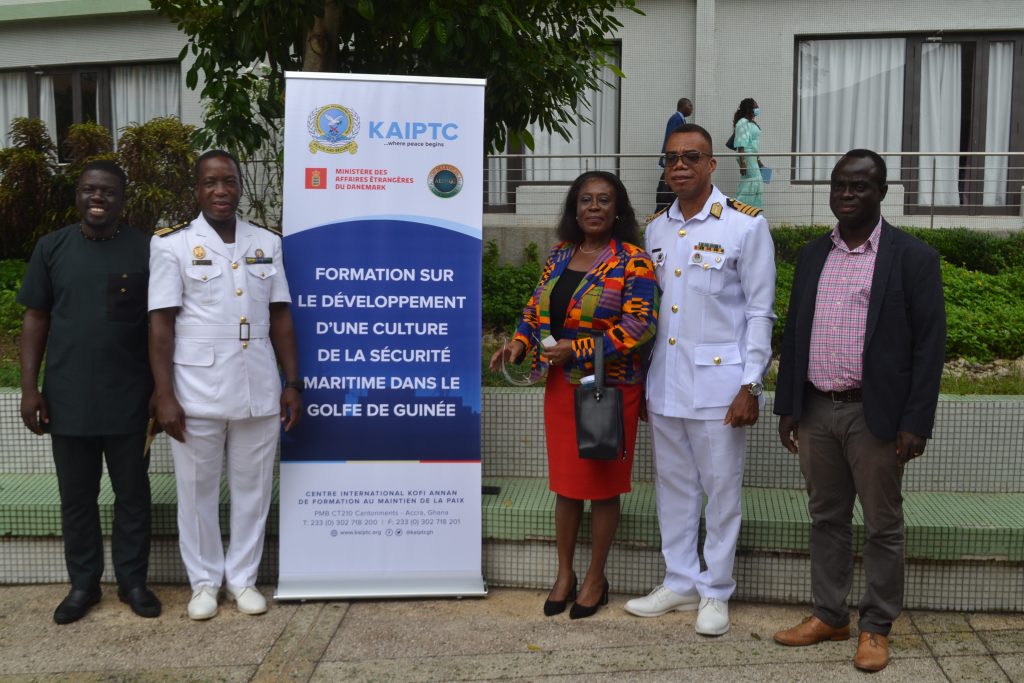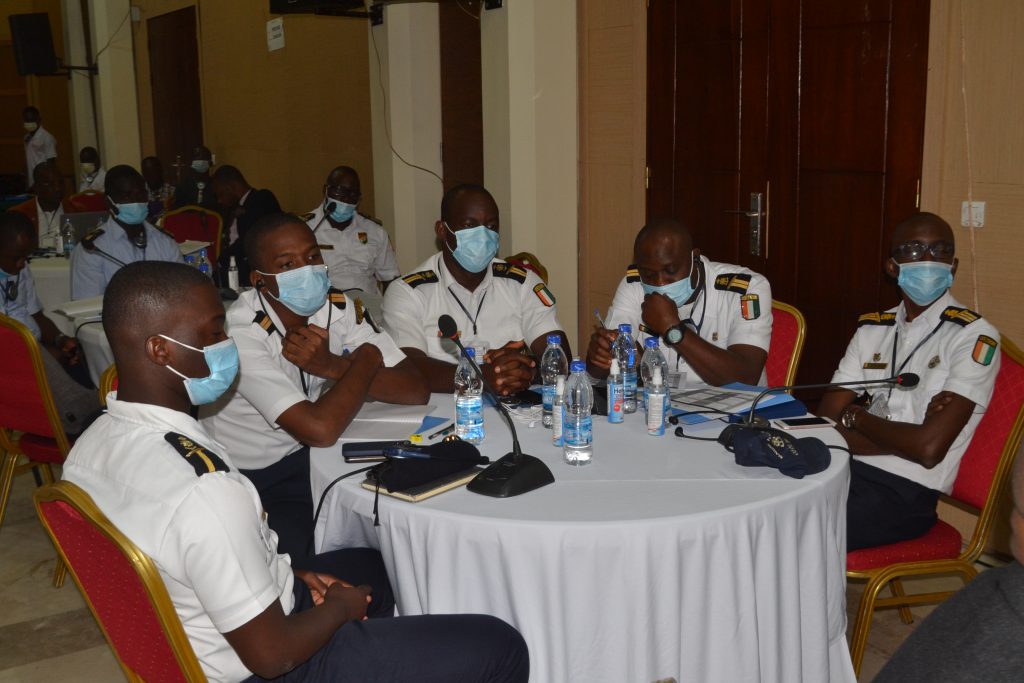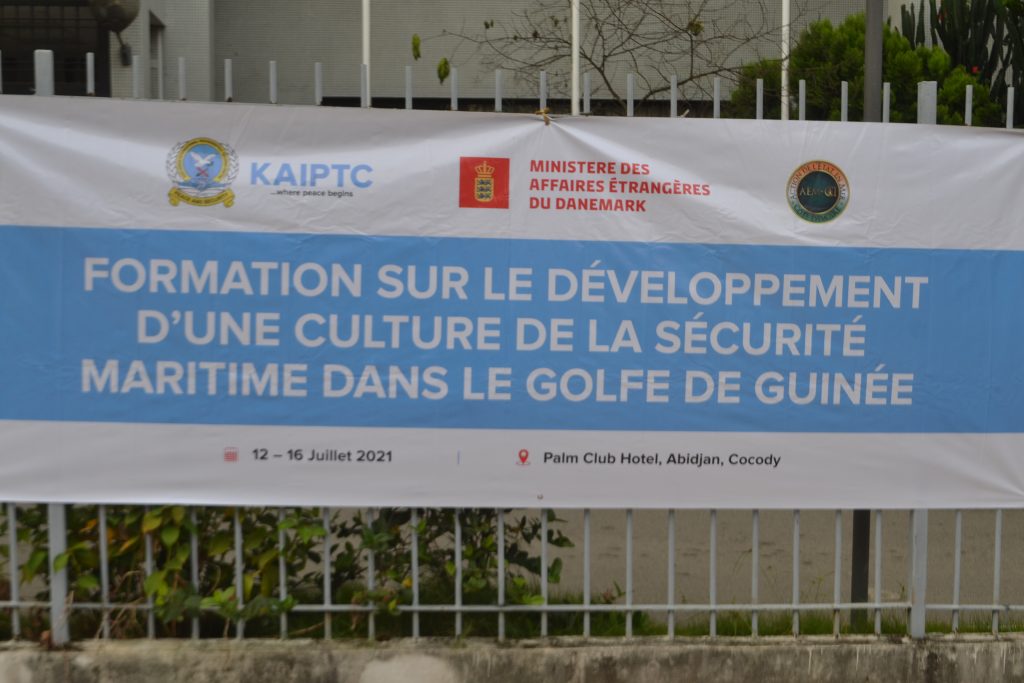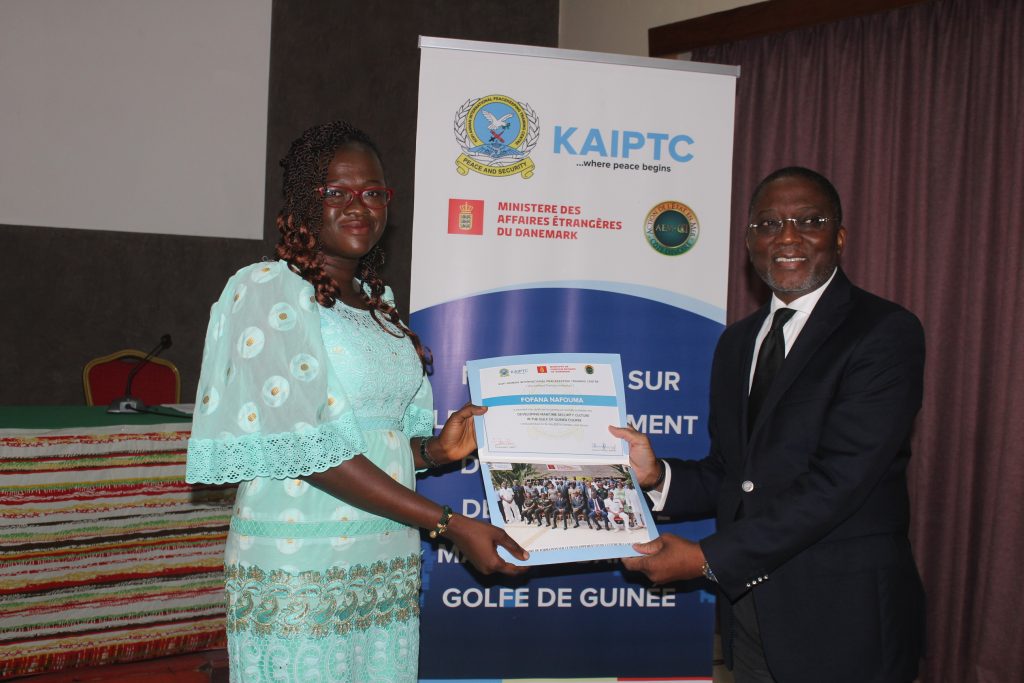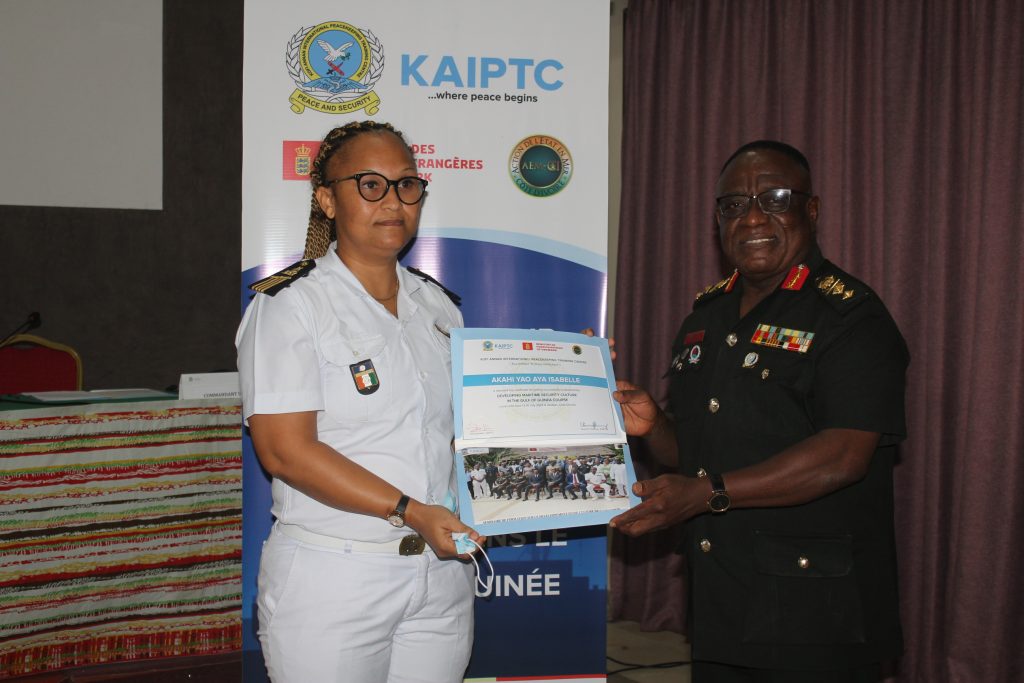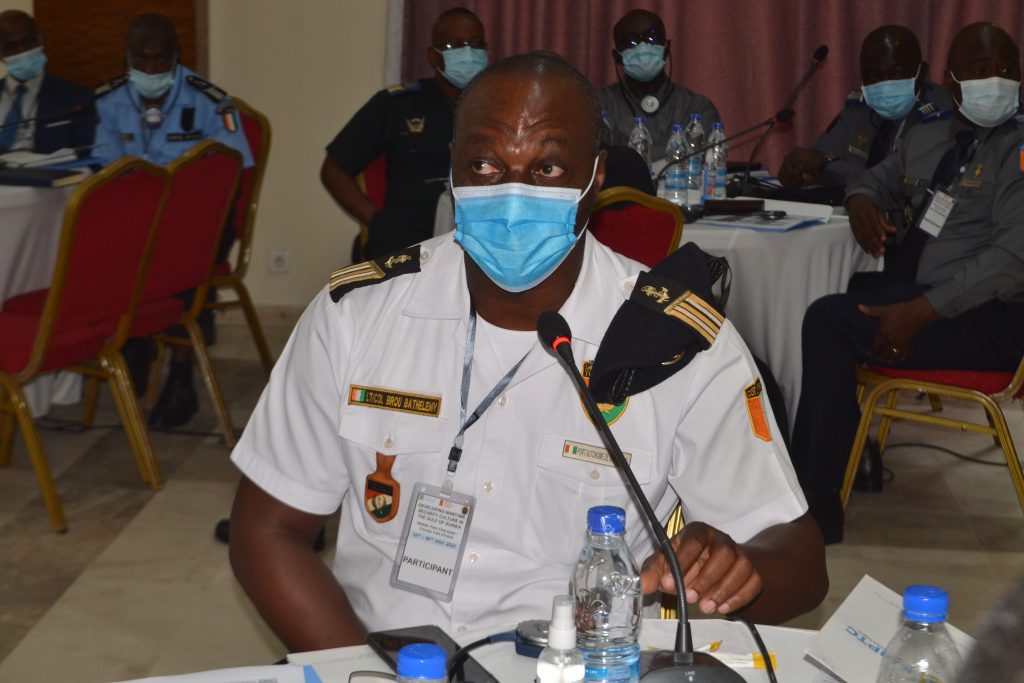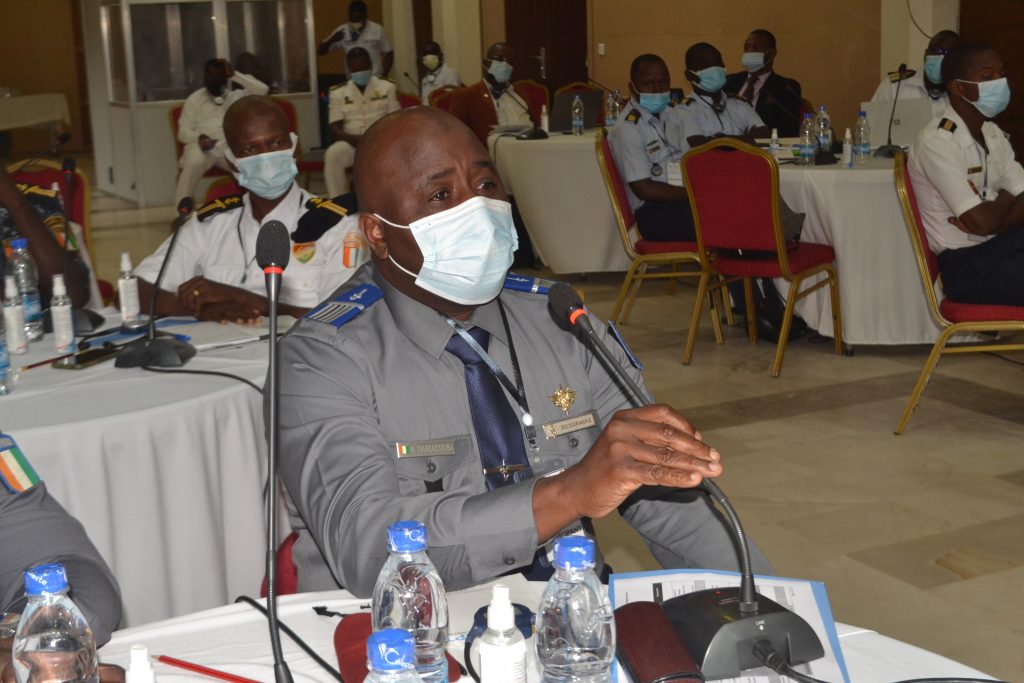12-16TH JULY, 2021.
The Kofi Annan International Peacekeeping Training Centre (KAIPTC), in collaboration with the Government of Denmark and the Permanent Secretariat of the State Action at Sea (SEPCIM) of Cote d’Ivoire organized the Developing Maritime Security Culture in the Gulf of Guinea course at the Palm Club Hotel in Abidjan, Cote d’Ivoire. The course took place from 12-16 July, 2021 and brought together a total of 37 participants from 21 agencies comprising the State Action at Sea. They include the National Coordinating body of the State Action at Sea (SEPCIM), State Action at Sea front agencies (Navy, Air Force, Maritime Administration, Fisheries, Gendarmerie, Abidjan and San Pedro Ports, etc.), State Action at Sea support agencies (Ministry of Justice, Ministry of Foreign Affairs, Army) and National Partner agencies for State Action at Sea (Civil Aviation Authority, Water and Forest Agency, INTERPOL National Central Bureau, Early Warning Centre, etc.) Participants were made up of 34 (92%) males and 3 (8%) females. This activity constituted the fifth training under the capacity building component of the project on Enhancing Regional Research, Capacity building and Convening of Stakeholders Towards a Safer Maritime Domain in the Gulf of Guinea which is being implemented by the KAIPTC in collaboration with the Government of Denmark.
At the opening ceremony were the Commandant of the KAIPTC, Major General Francis Ofori, the representative of the Prime Minister of Cote D’Ivoire, Mr. Abroulaye Fofana who is also the Permanent Secretary of SEPCIM and Ghana’s Ambassador to Cote D’Ivoire, and His Excellency Frederick Daniel Laryea. Other dignitaries included Ghana’s Defense Attaché to Cote D’Ivoire, Brig. Gen. Felicia Twum-Barimah and the representative of the Chief of Naval Staff of Cote D’Ivoire, Senior Naval Captain Amara Kone. In his welcome address, Major Gen. Francis Ofori mentioned that the course originated from a request for training from the SEPCIM which demonstrates the seriousness the country attaches to maritime security. The Commandant then stated that the Gulf of Guinea (GoG) waters continue to be dangerous for seafarers as the region accounted for all 40 crew kidnapped as at July, 2021. He opined that “in the face of mounting criminality and more sophisticated maritime pirates in the GoG, an all-hands-on-deck approach was needed now more than ever to reduce the activities of pirates and other maritime criminals.” He therefore encouraged the participants to use the opportunity to establish networks and work together to fight maritime crimes in Cote D’Ivoire and the Gulf of Guinea in general.
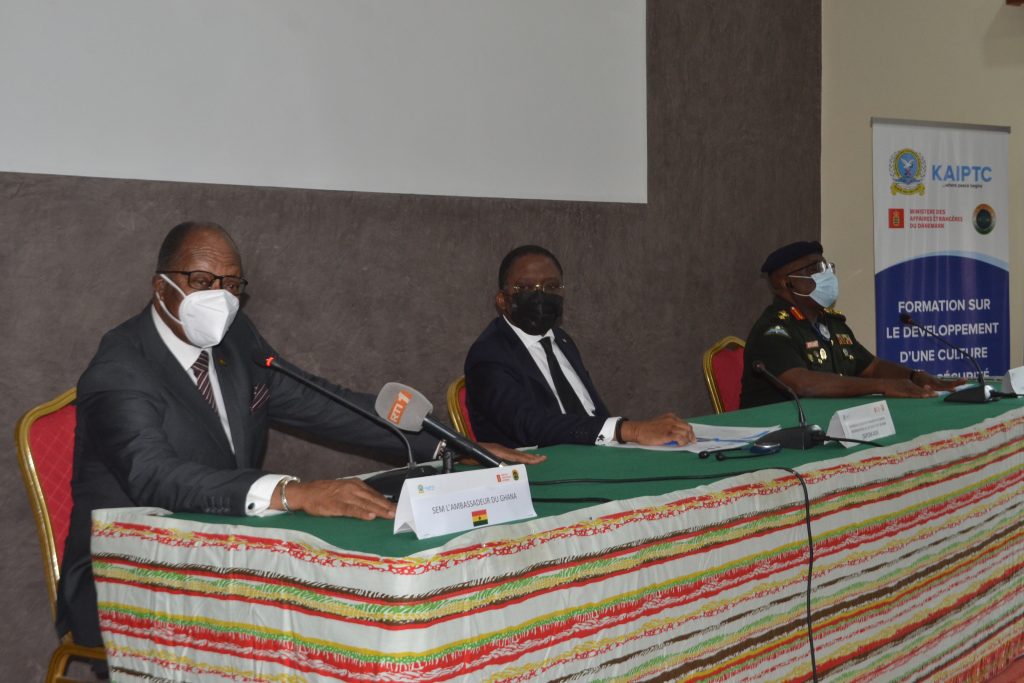
In his opening remarks, Mr. Abroulaye Fofana, thanked the Prime Minister of Cote D’Ivoire, His Excellency Patrick Jerome Achi for authorizing the conduct of the training. He also thanked the Commandant of the KAIPTC for organizing such a training in Cote d’Ivoire which he noted underscores the interest of KAIPTC in promoting peace and security in Africa and more particularly between Ghana and Cote d’Ivoire. In appreciating the importance of the blue economy, Mr. Fofana mentioned that income from trade conducted through the sea contributes more than 80% to the national budget. He reiterated the importance of the blue economy to the economic development of the country and the need to ensure maritime security in order to make good use of the maritime domain. Referring to the transnational nature of numerous maritime crimes in the Gulf of Guinea, Mr. Fofana further noted that there is the need for collaboration between national agencies as well as regional and international cooperation to fight the maritime crimes in the region. In view of the above, Mr. Fofana acknowledged the importance of the institutional, operational and legal frameworks that are gradually being put in place to promote maritime security in the GoG. He stressed that training and capacity building of the executives and staff of maritime agencies in GoG countries is essential for the implementation of the legal and policy frameworks. In his conclusion, Mr. Fofana thanked the KAIPTC and the Government of Denmark for contributing to the capacity building of Ivorian maritime security actors from 21 administrations and structures making up the State Action at Sea, contrary to the usual practice of receiving offers for one or two vacancies.
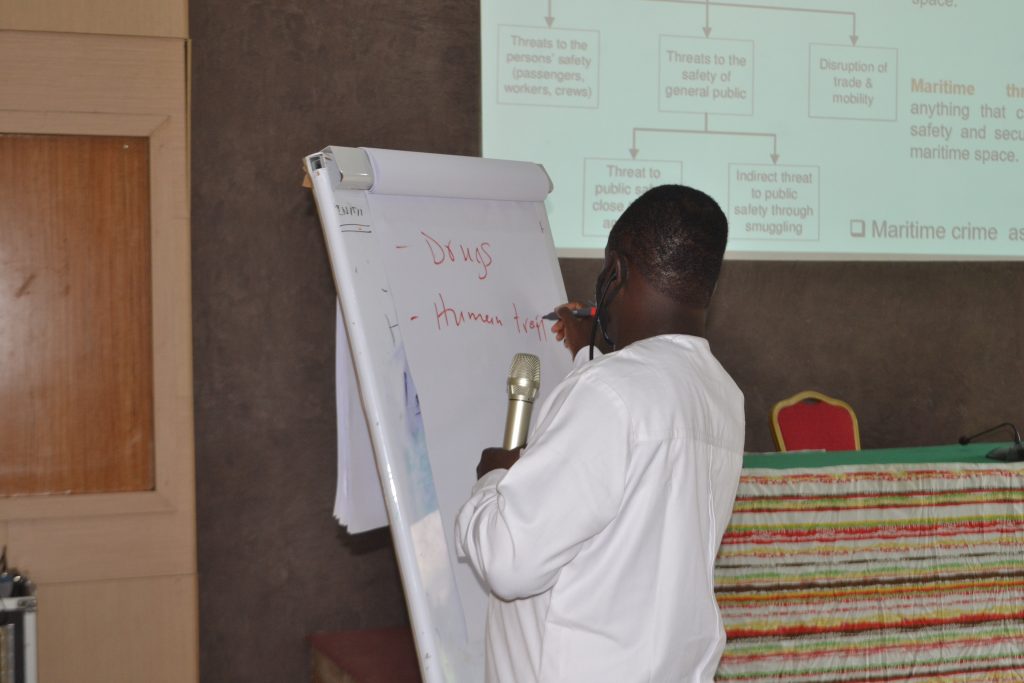
Course Proceedings
During the one-week training, participants were taken through eight modules by experienced facilitators from the navy, legal and academia. The facilitators were thus made up of experts from the KAIPTC, SEPCIM, Regional Centre for Maritime Security of West Africa (CRESMAO) and the Ivorian Navy. The modules focused on areas such as insecurities in the GoG which highlighted the existing and emerging criminalities in the GoG and elaborated on the types of crimes currently being experienced in the region. The training also enlightened participants on the national, regional and international legal and policy frameworks governing maritime security. Other modules which were taught during the training included incident reporting mechanisms, mapping maritime security actors and stakeholders, managing relationships and inter-agency collaboration and maritime intelligence, information sharing and management. Various sessions of the training created time for discussions which allowed the participants to deliberate on some of the opportunities and challenges in the Ivorian maritime domain. There were discussions on the prosecution processes for maritime criminals and the role which is expected of each of the agencies involved in the process. The participants also shared their experiences in collaborating with other actors and agencies and made suggestions on measures that could enhance collaboration and cooperation among maritime agencies in Cote d’Ivoire and between Ivorian agencies and other GoG States.
As part of the training, the course participants visited the main Cote d’Ivoire Maritime Operations Centre (MOC) where they were briefed on operations of the Centre and its role in coordinating information sharing among maritime agencies. The actors were introduced to the surveillance equipment of the Centre such as SeaVision and how this equipment enables the monitoring of the country’s waters. Participants were also informed about the Yaoundé Architecture Regional Information System (YARIS) software and how its implementation will enhance information sharing among the MOCs of GoG countries and the regional maritime agencies. The practical sessions of the course also involved a visit to CRESMAO where the participants were briefed on the coordinating role of the Centre in promoting maritime security in West Africa.
The 5-day training came to an end on the 16th of July, 2021 after presentation of certificates by the Commandant of the KAIPTC. In his closing remarks, he acknowledged how the course modules and discussions delved deep into the maritime security issues in Cote D’Ivoire and the Gulf of Guinea. He continued by adding that “with the presence of actors from diverse agencies, this training presents an opportunity to galvanize support from all maritime agencies to collaborate and cooperate in the implementation of measures that will help to fight maritime crimes in Cote d’Ivoire and the Gulf of Guinea in general”. Mr. Abroulaye Fofana, in his closing speech, expressed appreciation to the KAIPTC on behalf of the Prime Minister for conducting a training for all agencies under the State Action at Sea for the first time. He also thanked the Commandant of the KAIPTC for the cooperation which he said is an indication of the relationship between Ghana and Cote d’Ivoire. He stated “one of the projects which indicate the relationship between the two countries is a joint maritime operation which will be held soon between Ghana and Cote d’Ivoire”. Mr. Fofana also thanked the Government of Denmark for the continued support provided to the sub region to enhance maritime security and also build the capacity of maritime security actors. This, he said is an important approach which is needed to enhance collaboration and cooperation both at the regional and national levels.
The training in Cote D’Ivoire provided the platform for all the agencies under the State Action at Sea to discuss issues of mutual interest geared towards enhancing collaboration and coordination among maritime agencies in the country. The training was also particularly important not only for cooperation and closer working relationships among national maritime agencies but also at the regional level, especially at a time when Ghana and Cote d’Ivoire are implementing measures to enhance collaboration among their maritime agencies. This is demonstrated by the planned joint maritime operations which is expected to be carried out between the two countries. Participants also gave positive feedback for the training and expressed how they were going to implement the knowledge acquired to recommend and implement initiatives to contribute towards enhanced maritime security in Cote d’Ivoire and the GoG.
Reflections from Participants
With the knowledge acquired from this training, I intend to actively participate in the development of draft policies in the field of maritime pollution. The training has made me to understand the role of other maritime agencies in fighting maritime pollution and how I can collaborate with them to develop these documents.
Participant, Anti-Pollution Agency of Cote D’Ivoire.
First, I will share the knowledge gained from this training with my colleagues and subordinates and also recommend the establishment of joint patrols with the navy in order to learn from them. We have a unit within the department of water and forests formed by the Special Force of Côte d’Ivoire and specialized in surveillance and intervention. Collaborating with the navy will enhance security in our internal waters
Participant, Water and Forest Agency.


